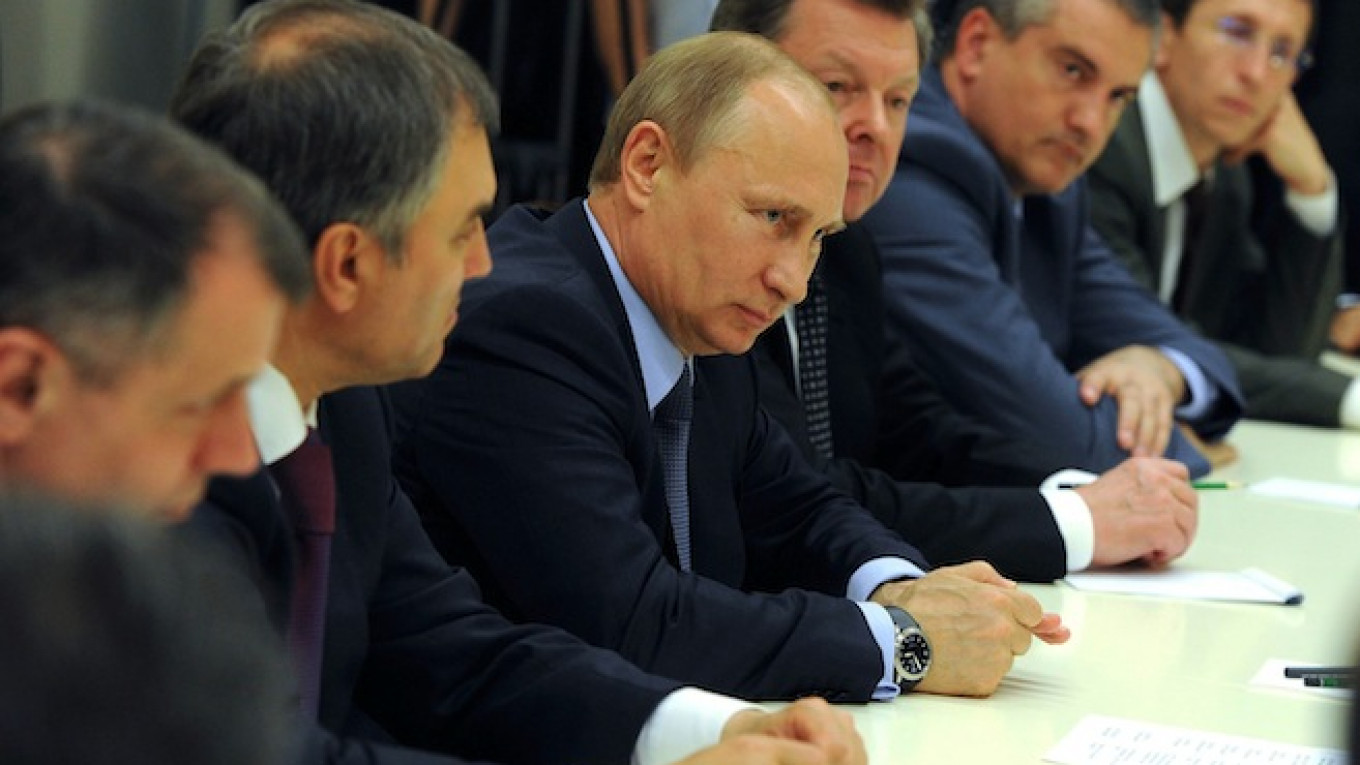Crimean authorities have drawn up an order prohibiting any large scale public meetings on the peninsula until June 6, a move that could result in the cancellation of a planned Crimean Tatar event remembering Stalin's deportation of the ethnic group.
The order, carrying the name of Crimea's acting head Sergei Aksyonov and , says that the decision was connected to violence in south-eastern Ukraine and aimed at eliminating possible extremist provocations.
A meeting had been planned for May 18, Crimean Tatars' traditional day of remembrance for those deported by Soviet leader Josef Stalin for their alleged collaboration with Germany in World War II. Many of the 200,000 deportees died on their way to into exile in Central Asia.
The Muslim minority group was eventually allowed to return to the peninsula in the 1980s.
The relationship between the Crimean Tatars and the current authorities in Simferopol is a troubled one, with many having boycotted the March referendum on joining Russia.
Furthermore, thousands took to the streets earlier this month after their spiritual leader Mustafa Dzhemilev — who was a former leader of the Mejlis, the ethnic group's representative body — was banned from entering Crimea.
Crimean prosecutor Natalya Poklonskaya said she has asked for criminal cases to be opened against those who protest publicly against Dzhemilev's ban and threatened to "liquidate" the Mejlis.
Crimean Tatars' interactions with Russian authorities have not been entirely negative, however.
Last month President Vladimir Putin signed a decree officially rehabilitating the Crimean Tatars, while some small Crimean Tatar groups have said that Kiev had done little to help them since their return and that they are happy to be part of Russia.
Meeting with Crimean Tatar representatives on Friday, Putin said "We cannot allow the Crimean Tatar people to become a bargaining chip in any disputes, including and above all intergovernmental disputes."
Read more:
A Message from The Moscow Times:
Dear readers,
We are facing unprecedented challenges. Russia's Prosecutor General's Office has designated The Moscow Times as an "undesirable" organization, criminalizing our work and putting our staff at risk of prosecution. This follows our earlier unjust labeling as a "foreign agent."
These actions are direct attempts to silence independent journalism in Russia. The authorities claim our work "discredits the decisions of the Russian leadership." We see things differently: we strive to provide accurate, unbiased reporting on Russia.
We, the journalists of The Moscow Times, refuse to be silenced. But to continue our work, we need your help.
Your support, no matter how small, makes a world of difference. If you can, please support us monthly starting from just $2. It's quick to set up, and every contribution makes a significant impact.
By supporting The Moscow Times, you're defending open, independent journalism in the face of repression. Thank you for standing with us.
Remind me later.






